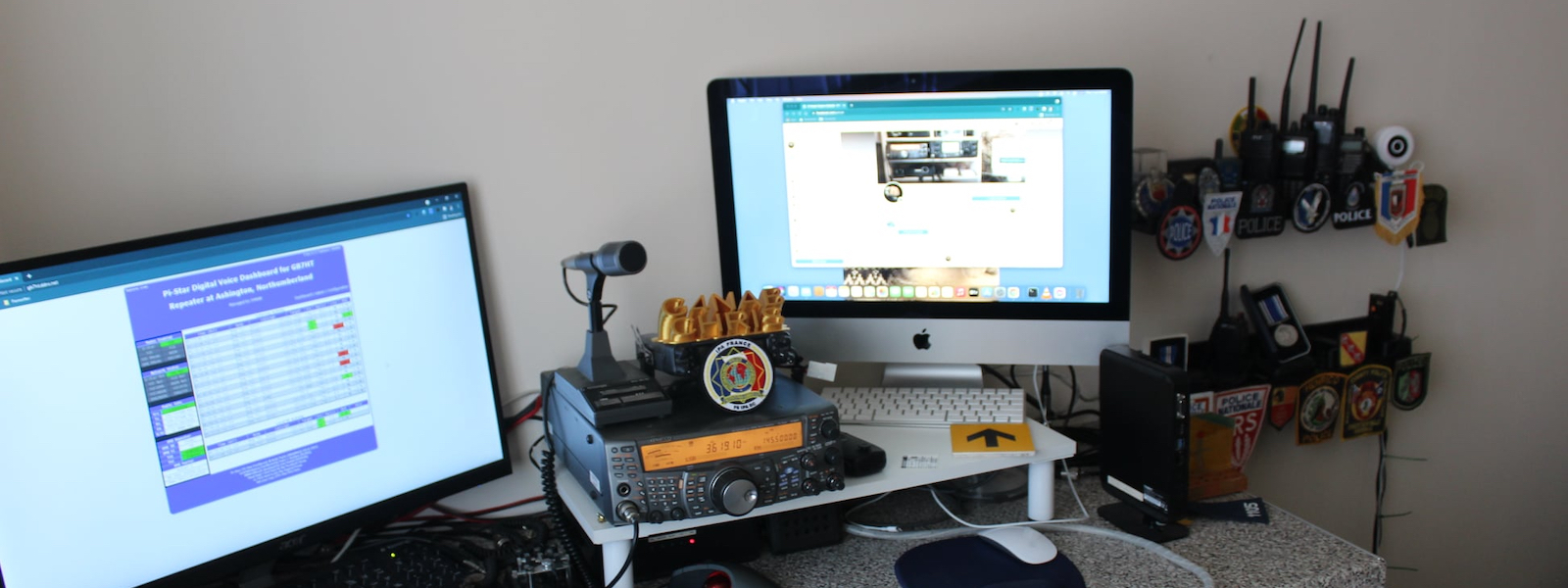This is the Information for UK radio amateurs and potential candidates.
What is amateur radio?
Amateur radio is a hobby that enables participants to experiment with and learn about radio and to communicate with other radio amateurs around the world. By international agreement, amateur radio is exclusively non-commercial. This same agreement also says that each country must ensure that its radio amateurs are operationally and technically competent.
How do I become a radio amateur?
A person who wishes to operate as a radio amateur in the UK or Crown Dependencies (Guernsey, Jersey and the Isle of Man) must hold a Licence issued by Ofcom or qualify under the international arrangements, described below.
Ofcom issues three levels of Amateur Radio Licences – Foundation, Intermediate and Full. The licences grant additional privileges (for example greater power, more frequencies or operating farther afield) as the radio amateur progresses.
To qualify for each Licence, applicants must pass an examination at the corresponding level, to demonstrate that they have the skills to use amateur radio at that level. The examinations are administered by the Radio Society of Great Britain (‘RSGB’), the principal representative body for radio amateurs in the UK.
Each level of examination builds on the last. To sit the Intermediate-level examination, a candidate must first pass the Foundation examination. To sit the Full-level examination, the candidate must first pass the Foundation and Intermediate examinations.
However, there is no requirement for radio amateurs to hold each class of licence as they progress, as long as they pass the examinations. This means that a candidate who passes all three examinations at once (which some candidates do) may apply immediately for a Full Licence; there would be no need to apply for a Foundation and/or Intermediate Licence first.
There are arrangements for foreign radio amateurs as visitors or full time residents.
How hard are the examinations?
The Foundation examination is multiple choice and tests the candidate’s knowledge of basic technology and the terms and conditions of the UK Amateur Radio Licence. This aims to ensure that anyone using amateur radio knows what is and is not permitted, so reducing the risk of the station causing interference to other users of radio.
The Intermediate examination builds on this. It is in two parts. The first is a practical assessment, which includes basic practical electronics (for example soldering a simple circuit), followed by a multiple-choice paper.
Finally, the Full examination is a demanding multiple-choice test of radio and electronics theory.
When a candidate passes one of the amateur radio examinations, the RSGB issues a Candidate Number, which denotes the level of the exam that the candidate has passed. The successful candidate may then quote that candidate number, when applying for a licence at that level from Ofcom, via the licensing portal.
The portal includes instructions on how to register to use it, if an applicant is not already registered.
How do I study for and sit the examinations?
The Radio Society of Great Britain is the principal representative body for radio amateurs in the UK. They administer amateur radio examinations and have published guidance for students.
It includes an interactive map to help find where the various courses are given and to locate the nearest examination centre.
These examinations are available online.
The RSGB has published information about online exams for candidates.
I used to be a licensed radio amateur but left the hobby. How do I reapply?
A radio amateur who passed an examination some years ago but surrendered their licence or allowed it to lapse (and who does not therefore now hold any UK amateur radio licence) may reapply for an Amateur Radio Licence at the same level, without the need to take a fresh examination.
Returners must submit one application only. This must be for the higher or highest class of licence previously held.
Ofcom must be satisfied that the applicant has passed the examination at the level of the licence being applied for. This can be demonstrated by including a copy of an old exam pass certificate or an old licence with the application form. You need not request a Candidate № from the RSGB. Candidate №s are used when someone first applies for a licence at a given level, having passed the relevant examination.
A radio amateur who held both the Class A and Class B Full licences may apply for only one Amateur Radio (Full) licence today.
